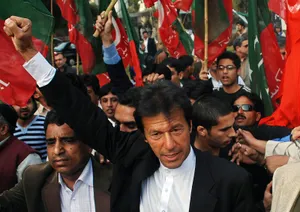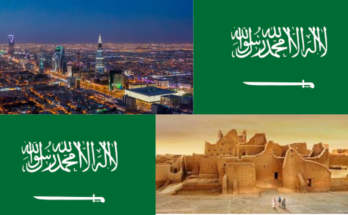Imran Khan, a name that resonates with both cricket and politics, has left an indelible mark on Pakistan’s political landscape. From being an internationally acclaimed cricketer to leading Pakistan to its first World Cup victory in 1992, Khan’s journey into politics was one that caught many by surprise. His entry into politics was not just about adding another title to his name, but rather a sincere attempt to bring about real change in Pakistan. In 1996, he founded Pakistan Tehreek-e-Insaf (PTI), a political party with a mission to create a “Naya Pakistan” or a New Pakistan.

Imran-Khan-Tehreek-e-Insaf-party-2008
The Formation of PTI: A Vision for Change
When Imran Khan founded PTI, his primary aim was to combat the corruption entrenched in Pakistan’s political and administrative systems. For years, the country had seen a back-and-forth power struggle between two major parties: Pakistan People’s Party (PPP) and Pakistan Muslim League-Nawaz (PML-N). Khan believed both parties had failed to address the pressing issues of governance, corruption, and inequality in Pakistan.
PTI started as a small party with limited resources, and it took years of perseverance for it to become a major political player. Khan’s focus on justice (“insaf”) for all, social equality, and anti-corruption resonated with the common man, particularly the youth. His charisma and clean image in a political field tainted with corruption scandals gave PTI a unique position in Pakistan’s political arena.
Early Struggles and Setbacks
The early years of PTI were marked by several setbacks. Khan’s party was initially seen as a minor player, unable to challenge the two political giants, PPP and PML-N. In the general elections of 1997, PTI failed to secure a single seat. Despite these early failures, Khan remained undeterred. He continued to highlight issues such as electoral reforms, accountability, and justice, slowly but steadily gathering a loyal base of supporters.
It wasn’t until 2011 that PTI saw a major breakthrough. Imran Khan’s massive rally in Lahore that year marked a turning point in Pakistani politics. The sheer number of attendees and the energy of the event showed that PTI had grown from a fringe party into a force to be reckoned with. This was the beginning of PTI’s rise as a national political movement.
2018 General Elections: The Turning Point
After years of struggle, PTI’s efforts bore fruit in the 2018 general elections. Imran Khan’s message of change, combined with widespread dissatisfaction with the ruling parties, led to PTI’s victory. Khan was elected as the 22nd Prime Minister of Pakistan, marking the first time PTI had secured such a significant political achievement.
During his election campaign, Khan had promised to tackle corruption, improve the economy, and transform Pakistan into a welfare state based on Islamic principles of justice and equality. He spoke of creating 10 million jobs, building five million homes for the underprivileged, and reforming Pakistan’s education and healthcare systems.
Imran Khan’s Governance: A Mixed Bag
Once in power, Imran Khan faced numerous challenges. Pakistan’s economy was struggling, with rising inflation, unemployment, and an increasing debt burden. His government sought loans from international institutions like the IMF, which led to austerity measures that were unpopular among the public.
Despite these economic challenges, Khan’s government made some notable achievements. The Ehsaas Program, a social welfare initiative, aimed to provide financial assistance to the poor, women, and children. The Sehat Sahulat Program, a health card scheme, provided free healthcare to millions of Pakistanis.
Khan’s government also emphasized environmental reforms. The “Billion Tree Tsunami” project, which aimed to combat climate change through large-scale reforestation, garnered international praise. Additionally, his government worked towards improving tourism, digital infrastructure, and foreign investment opportunities.
However, Khan’s tenure was not without its controversies. His government faced criticism for its handling of the economy, the rising cost of living, and accusations of selective accountability against political opponents. Political instability, particularly in dealing with opposition parties and internal PTI divisions, also posed significant challenges.
Foreign Policy and Diplomacy
Imran Khan’s approach to foreign policy was marked by attempts to reset Pakistan’s relations with key global powers. His focus on improving ties with neighboring countries like India, China, and Afghanistan was notable. Khan consistently advocated for peace and diplomacy, especially concerning the Kashmir conflict with India.
His government also maintained a close relationship with China, particularly concerning the China-Pakistan Economic Corridor (CPEC). Khan’s emphasis on economic diplomacy, particularly in seeking foreign investment, was an important part of his foreign policy agenda.
The Fall of PTI’s Government in 2022
Despite PTI’s initial success, Imran Khan’s government faced increasing political pressure. In April 2022, Khan’s government was ousted through a vote of no-confidence, which marked the first time in Pakistan’s history that a sitting Prime Minister had been removed in such a manner. Khan accused opposition parties of conspiring with foreign powers to destabilize his government, a claim that sparked significant debate.
Following his ouster, Imran Khan and PTI began a robust campaign to regain political relevance. Khan’s narrative of foreign interference, combined with his anti-corruption message, continued to resonate with a large portion of the Pakistani public. Even out of power, Khan remains a central figure in Pakistan’s political landscape, with PTI still holding a strong position in national politics.
Conclusion
Imran Khan and Pakistan Tehreek-e-Insaf have brought significant shifts to Pakistan’s political scene. From a cricket legend to a political leader, Khan’s journey has been one of resilience, ambition, and vision. His tenure as Prime Minister may have been marked by challenges, but his influence on Pakistan’s political future is undeniable. PTI continues to be a major political force, and Khan’s dream of a “Naya Pakistan” still captivates millions of Pakistanis.


